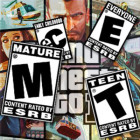
High Court to Rule on Constitutionality of Life Sentences for Minors Convicted of Murder
|
The U.S Supreme Court is set to hear two cases that will test the constitutionality of sentencing juveniles convicted of murder to life imprisonment without the possibility of parole. Last month, the nation’s highest court agreed to review Miller v. Alabama and Jackson v. Hobbs, two cases involving juveniles convicted of murder, to determine whether life imprisonment sentences for minors found guilty of homicide is a violation of the Eighth Amendment’s ban on cruel and unusual punishment. Evan Miller and Kuntrell Jackson were both found guilty of committing capital murder when they were 14. In 2003, Miller was found guilty of beating his neighbor, Cole Cannon, with a baseball bat and subsequently setting fire to his trailer home, where Cannon died from smoke inhalation. In 1999, Jackson, then an Arkansas youth, was charged with felony murder stemming from a video store robbery, in which an accomplice shot and killed clerk Laurie Troup.






